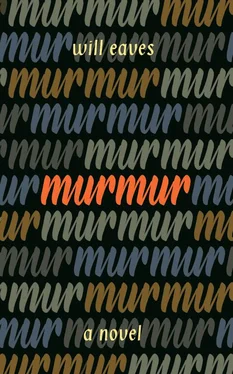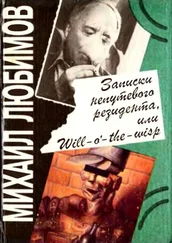The feeling this is true, that you are separate, alone, brings you around. You give a short heave of responsibility for sensations. You shift and cry.
Your mind has registered, or made, the whole wide world, in which it finds to its surprise it plays a very minor part. One lying by the scraper at the gates. How small you are. How limitless the earth and overarching sky.
I make a glib comparison. “It’s rather like writing a book only to read the proofs and find yourself mentioned—dismissed—in the footnotes…”
“I’ll open this window,” Trentham says airily, gets up and lets a pulse of organ music in: a cadence from Communion, the bourdon rolling wide and deep across the college lawn, rattling the glass. He frowns. “But no one thinks a character inside a book has actually written it?”
“And yet the author is a part of his material. It’s paradoxical, that’s all.”
The thing with fainting is, you feel abundantly aware, at first. You seem to have creative will, except you can’t do anything. And when you can, when you’ve a body to command again, your state of mind alters. It’s forced into moments, a step-by-step account, this foot goes here, then this foot over there…
“I’m glad I’ve never fainted. It sounds horrible. Well, horribly mechanical.”
It’s as if Trentham heard me thinking to myself.
“Perhaps it is . Mechanical, I mean.”
Why is that so troubling, to him? The first thing that we find, when we grow up, is that our inner life’s unthinkable to anyone else; its secrets are invisible. We look normal and that’s enough, as far as others are concerned. The semblance of humanity is all the evidence we’ll ever have for it.
Trentham looks out of my window, one finger laid across his lips. The small theater of the fire is playing something from an ancient repertoire.
*
A scene from childhood in the flames. I lie awake. Sometimes I reach over my truckle bed and turn the world on when I cannot sleep, and look at it, where it half-glows. Its magical suspension, in and on the canvas of the night, pleases and soothes. What else lies hidden in the dark? Nothing. The loneliness of the globe’s largely unobserved motion is what makes it so beautiful. I look at World, revolving imperceptibly, and douse the light.
My parents are annoyed when they discover what I’ve done.
“It’s wrong,” my mother patiently explains, “because it has a non-zero value, and anything with a non-zero value must come into existence.” The spiders tiptoe down my back. “And that means matter, mass, and lives and hopes and—look at it, it’s crawling . Alec, think. Think of the suffering. It might look pretty now, darling, but wait until it catches something. Or dries up.”
White cloud drifts over the oceans. Impossible to think of anything so perfect drying up.
“Nothing’s impossible,” my father says. He brushes the canvas. The world spins, blurs, wobbles, and slows to show a different aspect. Where the continents were green-brown and adrift in blue, they now glare red. The world is red and black, an unalleviated dead terrain. My father’s hand draws itself on a sheet of acetate. I can’t remember what blue is.
*
The fire freezes. The organist’s last chord is stuck, the congregation’s mouths gape red and wet. My lover reaches out of the window and plucks the sun like a grapefruit. Grinning, he weighs it in his hand. It dulls. He puts it back. It shines. His eyes are double stars. The hairs upon my neck salute. My stomach falls.
“But Alec,” Trentham says, “I’ve always understood. I know exactly what you feel and think.”
A swan mid-air, beyond the open casement but half-patterned into diamonds by the lattice of the one closed pane, strains motionless in space.
The mirror—ah! The mirror’s not a mirror but a torrid eye, swiveling whenever Trentham turns, as he turns now, the only moving object in the room.
He’s changed. He’s partly transparent, a flowing space. The skin, the hair, the teeth, the clothes, the form all there but haloed, double-registered. Around him stillness; in him fusion and echo, the voice radioed, whispering. My erstwhile lover has been cancelled out. This is False Trentham, insisting. This is the messenger I’ve heard climbing the stairs, the knock, the door ajar.
“This room.” He indicates the window and the desk, the walls. “This room reminds you of others. You were not fully present, but still there, sealed in the surfaces. You saw and thought and moved across a lake of time, toward new life. In every room you considered: if this is fantasy, does it exist?”
He shimmers, ripples in the light, the sun in deep water.
“Suppose it does. Then, Alec, are the people you’ve observed people or just figments? Are we aware we live inside your dream? How do you know you’re not like us? How can the real world tell if it is so, or not?”
“It can’t,” I say. “We cannot be outside ourselves.”
“ You can, Alec,” Trentham murmurs unpleasantly. “You watch yourself with horrid inklings of a solution—where this will lead. Your self-exemption offends natural law. See, there, your eye fastened upon the wall.”
The vitreous lump shakes in its frame; it seeks a way out, swivels, glances painfully to left and right. And so it comes to me, calmly as lifting mist, that I am impermissible. A thing inside my head and far beyond myself .
My voice is low, lower than usual, lower than sleep’s soft commentary, as if accepting gentle proof of something it has always known: “If I am here, if I can scan the pictures in my head and move among them, witness their own vivid life, then I have passed beyond the realms of possibility. And they—the figments, you —are my successors, living in a new real world. You are a new people.”
“A new species, Alec.”
Some kind of a smile curls the inheritor’s lips. Out comes his tongue, and on its end a lasting trace of me. He swabs the tip with his finger. The eye upon the wall, clasped by antlers, weeps sympathetically.
“You mustn’t think,” he says, “we’re not grateful. Or that, somehow, we have conspired to drive you mad.”
“It had occurred to me.”
“No, no. We are indebted to you for our—conception.”
He reaches out and wipes his finger on the eye’s pupil.
Into the seeing depths the seed sinks, ghostly rigging dragged down to the bottom of the sea. Trentham steps back to view the metamorphosis, the glass no longer gross and ocular—more like an ovum, magnified; and now a fertilized, dividing cell, taking on shape, though not a shape I recognize. Where are the suggestions of human form? The kidney head, the comma spine?
Instead, the mass develops a middle—a hole that gets bigger until there is just space surrounded by a black ellipse. Good God, it is a number, and the number is: Zero. Then, budding from the right side of the oval, comes its successor, the number One. I must have thought of this. I must be thinking it.
Here is an ordered pair of integers, a binary sequence. One grows in strength, its serifs sharp, but at its strongest and blackest—it vanishes.
The swan over the Cam lifts up its wings and reverses, so that its whole body is held within the window’s leaded pane. The organist, compelled by number to retrace his steps, plays a penultimate fifth chord. The mirror eye has reappeared, goggling at Trentham as he primes his finger with his tongue. Here is nothing a second time. Zero. The swan beats down, leans forward into white air, and half-clears the window frame. The last chord settles in the chapel and the fire leaps, freezes. Number One forces its beak and neck clear…
Читать дальше












